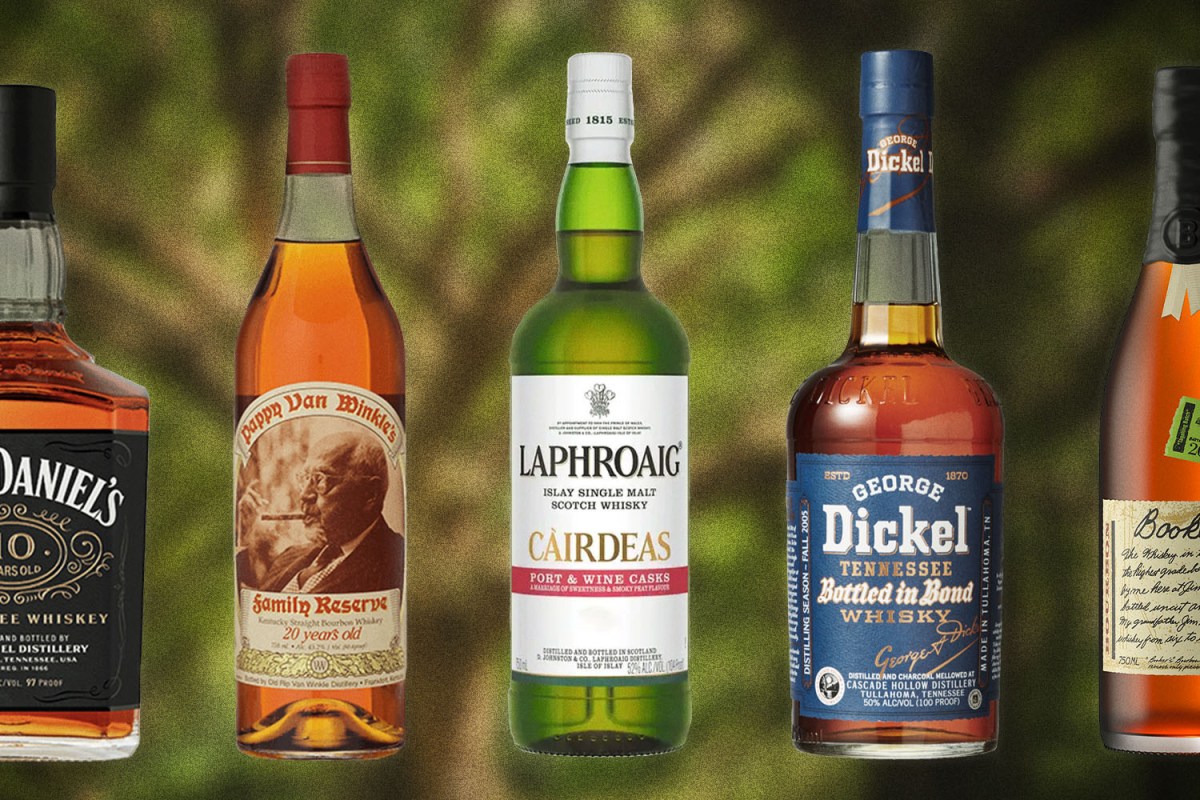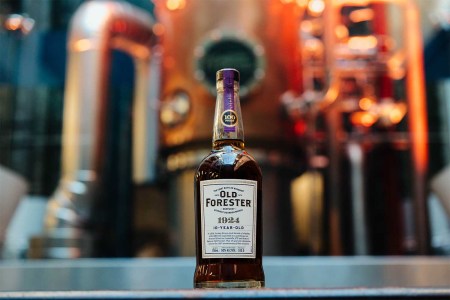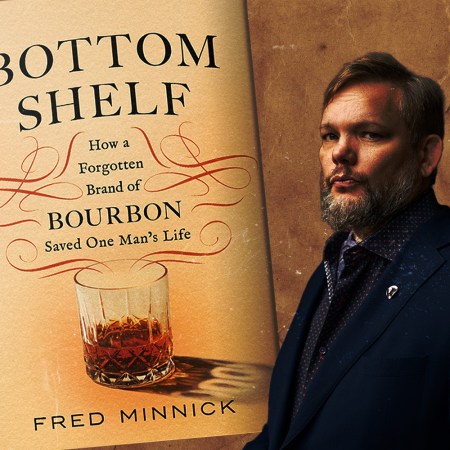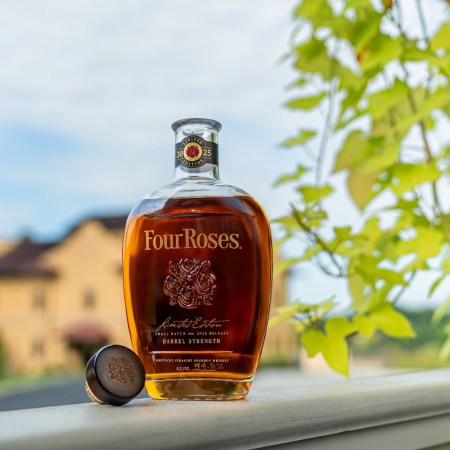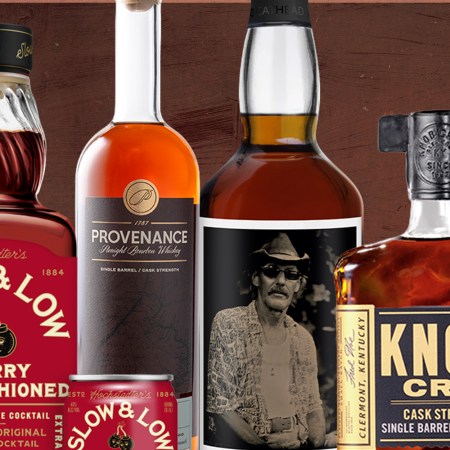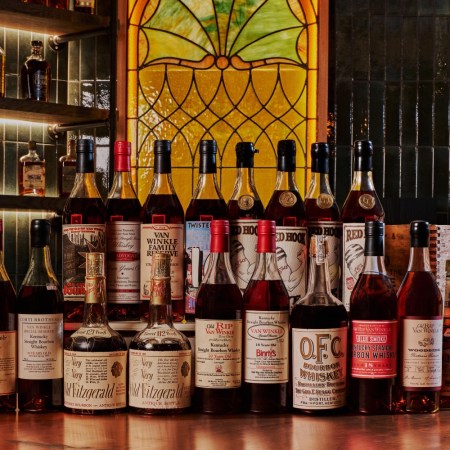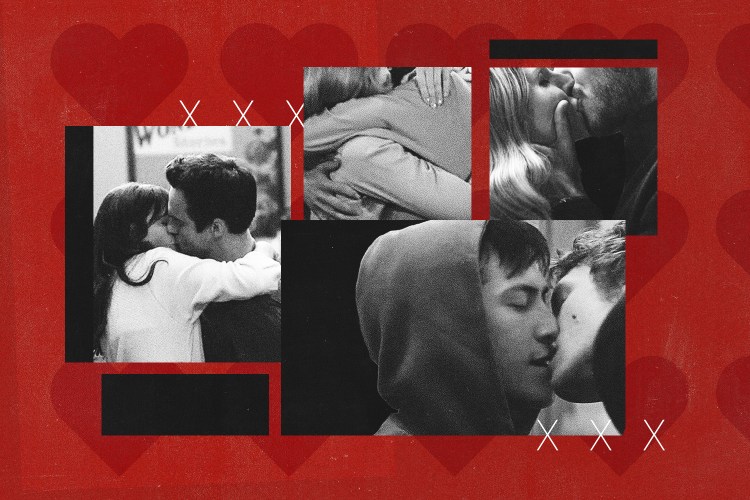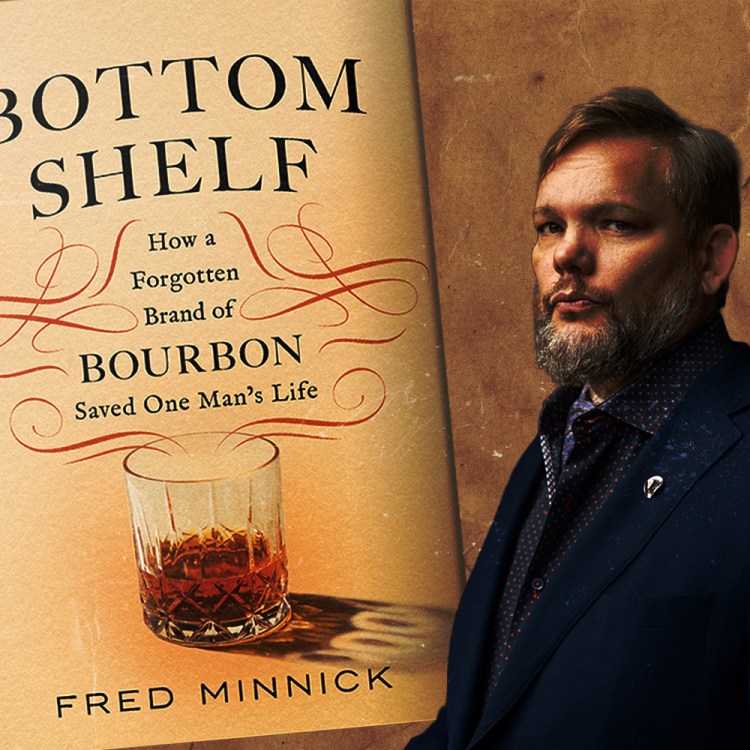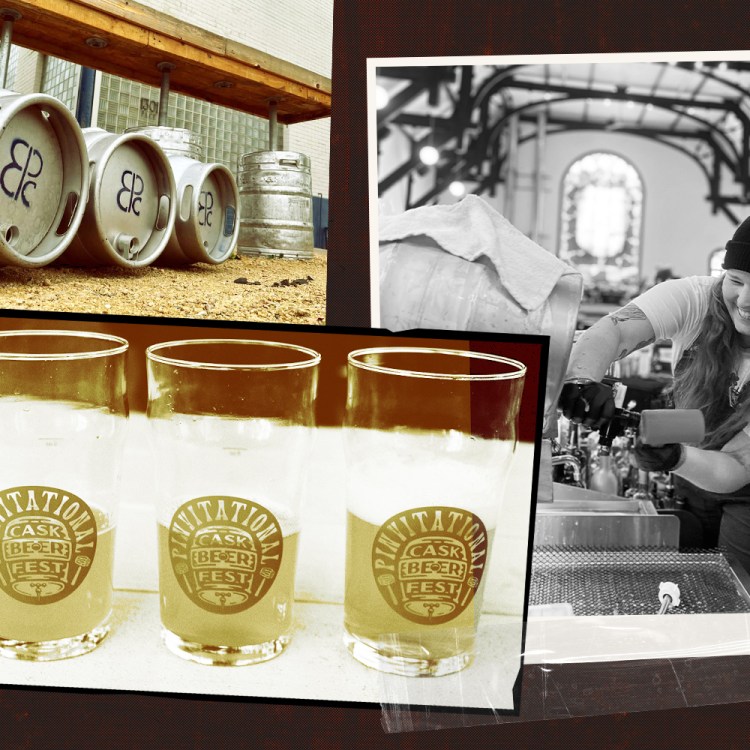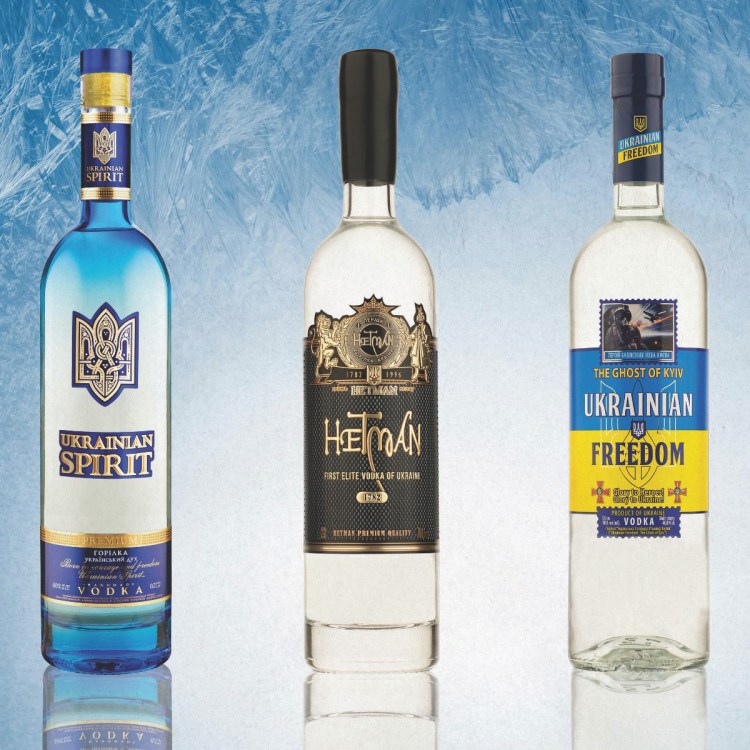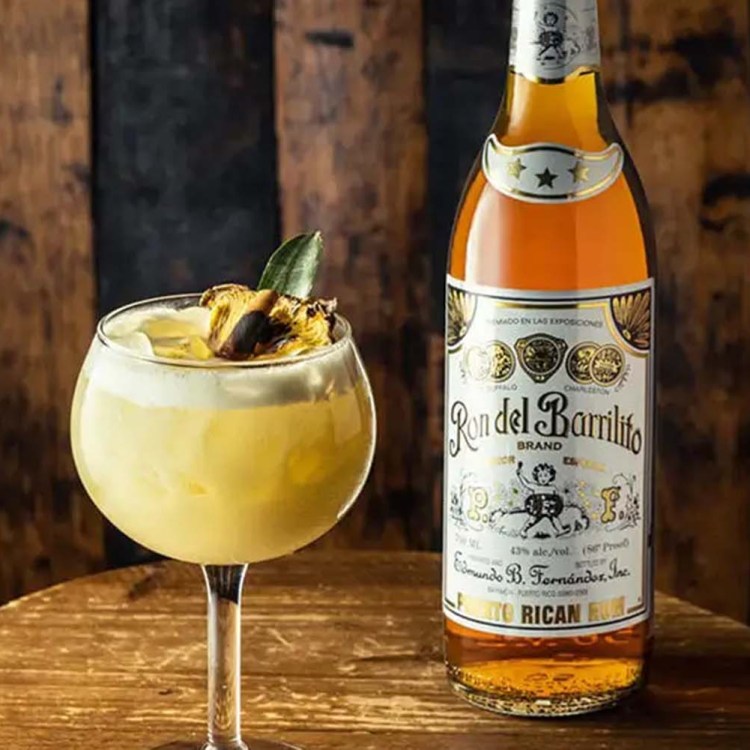Like the Shamrock Shake, Shark Week and PSL season, limited-edition whiskies are hotly anticipated throughout the year, their fleeting nature heightening excitement and — when you’re actually able to score a bottle — enjoyment. As competition for rare bottles stiffens with each passing day, a game plan is required. Get started with our rare whiskey release schedule below, which will help you anticipate upcoming launches.
Dates indicate distilleries’ usual U.S. release times — obviously, these are estimates and release patterns can change. When cited, prices indicate the distillery’s suggested retail price. These are difficult to find, but you might have some luck online at sites like The Whisky Exchange, ReserveBar and Frootbat.

Buffalo Trace Antique Collection (BTAC)
(September) The fabled lineup of bourbons and ryes includes barrel-proof heavyweights George T. Stagg, William Larue Weller, and Thomas H. Handy Sazerac, along with 100-proof Eagle Rare 17-Year-Old and 90-proof Sazerac 18-Year-Old. Technically, Buffalo Trace always releases these with a recommended retail price of $99, but in reality the price — whether at retail or on the secondary market —is much higher. Each bottle is accompanied by a letter detailing the minutiae of its production, from distillation date to the warehouse floors where its barrels were matured to how much liquid was lost to evaporation.
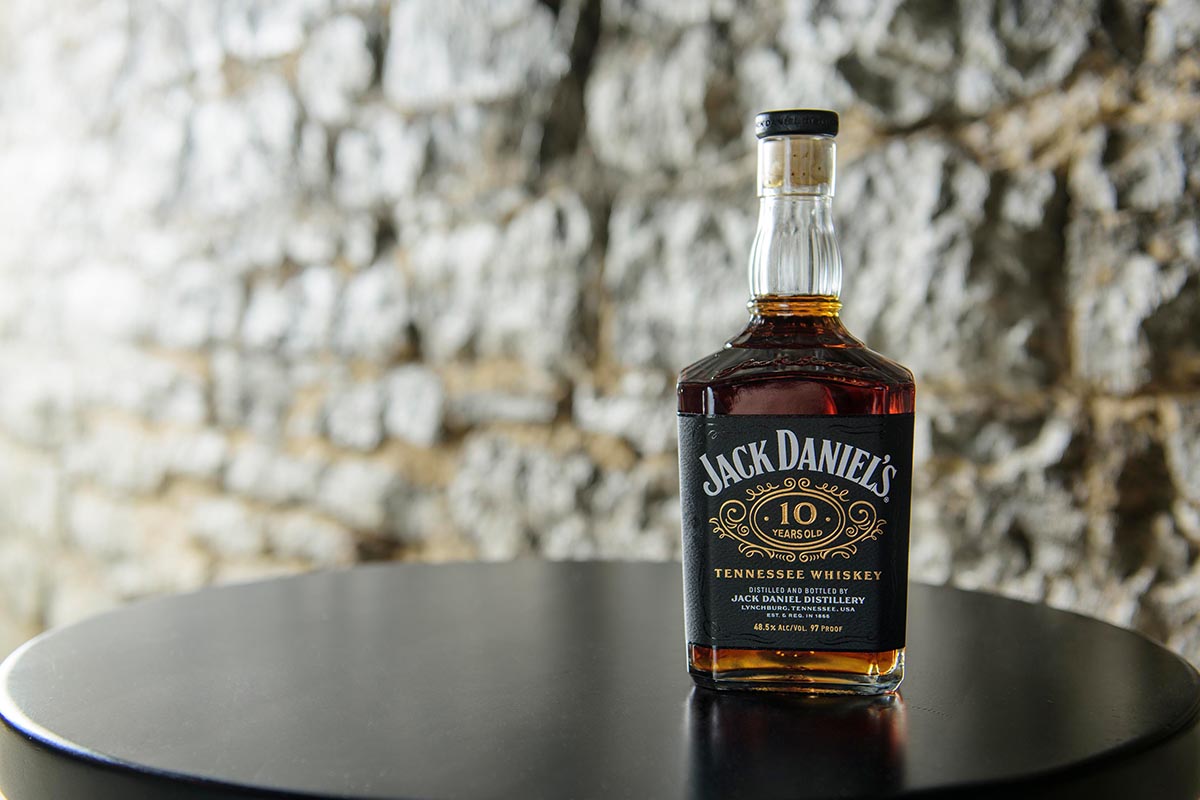
Jack Daniel’s 10-Year-Old and 12-Year-Old
(February) You don’t know Jack — not like this. Though they’re made with exactly the same mash bill and process as Old No. 7, right down to the charcoal mellowing, the 10- and 12-year-old bottlings from the world’s bestselling American whiskey feature denser, richer flavors with plenty of hefty barrel notes. These whiskeys are released annually, usually in February, and carry extremely fair suggested retail prices.

Buffalo Trace Prohibition Collection
(Late Fall) The distillery now called Buffalo Trace was once known as the George T. Stagg Distillery, and it was one of only six spirits producers allowed to bottle and sell whiskey during Prohibition. This lineup of five 375-ml bottles serves as a throwback to that era, with each annual release featuring different historic brands, such as Old Stagg, a barrel-proof bourbon; Golden Wedding, a 107-proof rye; and Three Feathers, a bottled-in-bond blended whiskey. The packaging itself nods to the Prohibition era, with cartons that replicate those used by doctors when prescribing whiskey as medicine.
Highland Park Cask Strength
(Fall) Though the Orkney distillery’s limited-edition whiskies have been all over the map in recent years, the 2020 debut of an annually available cask-strength expression came as a welcome addition. Matured in both ex-bourbon and sherry casks and featuring Highland Park’s signature heathery peat, this whisky packs a punch, topping 120 proof in its first two releases, with no chill-filtration. Its recommended price is $90 — right in line with the best of Scotland’s barrel-proof single malts, and a bit of a deal for Highland Park.

Maker’s Mark Cellar Aged
(Fall) A new limited-edition release from Maker’s Mark in 2023, returning annually, this extra-mature bourbon was more or less an instant sellout. And for good reason! The blend of 11- and 12-year-old barrels highlighted what careful maturation can do. Maker’s stored its signature wheated mash bill in regular warehouses for six years, then moved the barrels to a cellar built into the hills — essentially a cave — where the cool temperature slows down aging dynamics. What that means is this cask-strength bourbon is perfectly balanced, not overly tannic or woody, and worth every bit of effort it might take to track down.
Old Forester Just Introduced Its Biggest Innovation Since Prohibition
How the legendary bourbon brand went against the grain for its new 1924 releaseOld Forester 117 Series
(Usually February, July and December) Joining Birthday Bourbon in Old Forester’s highly allocated lineup, the 117 Series showcases the brand’s innovation and experimentation. Releases have included everything from High Angels’ Share — an exploration of bourbon from low-yield barrels in which much more of the contents than usual has evaporated — to Warehouse K, which matured in one of the brand’s most popular sources of single-barrel picks. The 117 Series comes out three times a year and is only available at Old Forester’s Louisville distillery and select Kentucky retailers.

Pappy and Old Rip Van Winkle
(November) Like its BTAC brethren, the Van Winkle lineup — which includes both Pappy, assigned to the 15, 20, and 23-year-old bourbons, and Old Rip Van Winkle, covering the 10-year-old, 12-year-old “Lot B,” and 25-year-old — rolls out all at once. How Buffalo Trace allocates bottles to retailers and bars is shrouded in secrecy, but it’s rumored to be based on the outlet’s success at selling other Sazerac products (like Fireball or Wheatley vodka) throughout the year. Regardless, there’s never enough to go around. Many liquor stores hold Pappy raffles or auction their bottles for charity, so keep an eye out and you might get lucky.
Parker’s Heritage Collection
(September) Created by legendary Heaven Hill master distiller Parker Beam, who passed away in 2017, this release never repeats; bottles have ranged from straight bourbon and rye to wheat and malt whiskies and even bourbons finished in cognac and orange curaçao casks. Though it hits shelves with a reasonable recommended price (it varies from year to year), this limited edition is eminently collectible and always appreciates in value.
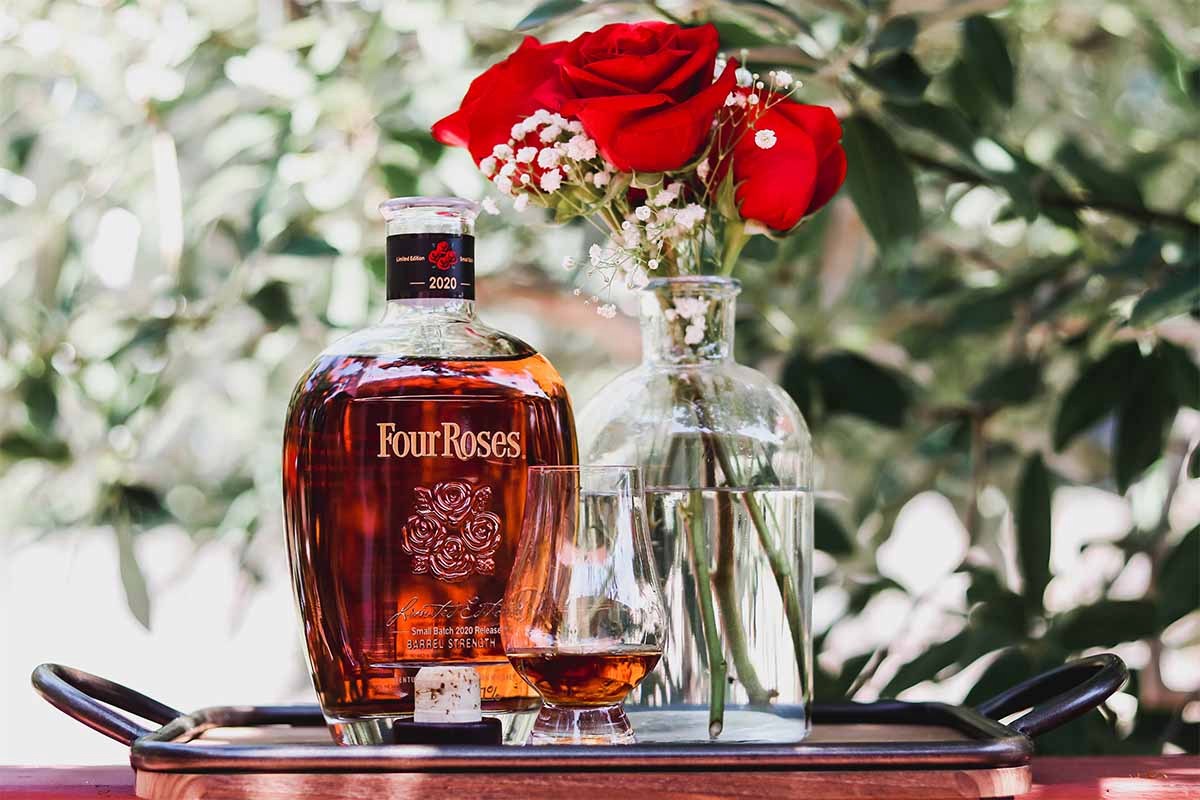
Four Roses Limited Edition Small Batch
(September) With five different mash bills and two yeasts, Four Roses makes 10 different recipes of bourbon, and each year’s Limited Edition Small Batch features a different combination. (You can decode the different recipes on the distillery’s website.) Although these bourbons never feature an age statement, they always include some super-mature liquid, up to 21 years old so far (there was a second limited edition in 2017, honoring longtime distillery employee Al Young, that featured 23-year-old bourbon). Recommended shelf price is around $150, and even with bottle counts that have grown over the years, this whiskey is still scarce.
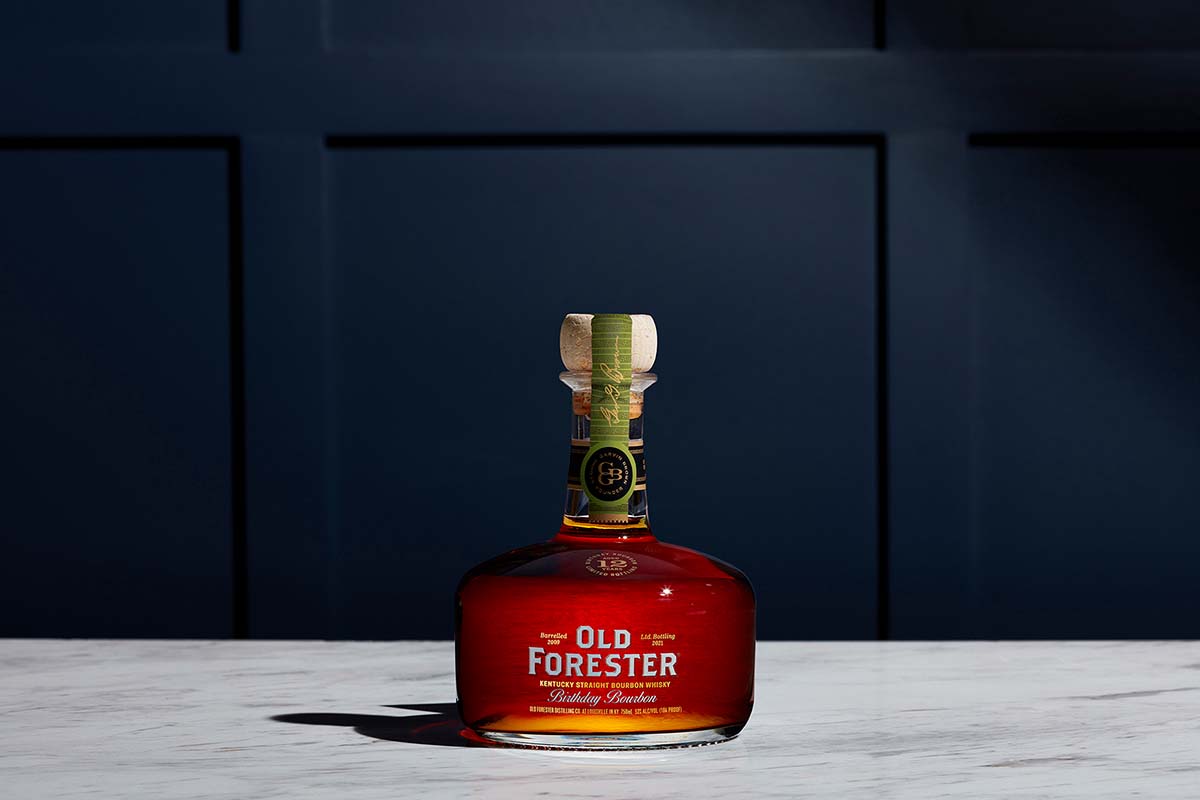
Old Forester Birthday Bourbon
(September 2) Always officially released on the birthday of company founder George Garvin Brown (born in 1846)—but in reality sometimes on shelves a bit earlier—Birthday Bourbon ushers in the high season for rare whiskey releases. Each bottling comes from a single day of production and features a unique flavor profile. Over the years, the bourbon’s age has ranged from 9 to 14 years old, but is usually in the 10-12 range, with proofs varying between 90 and 105. With SRP around $130, getting your hands on a bottle can be tough but is always well worth it.
Rabbit Hole Founder’s Collection
(Spring and fall) The founder lending his name to this limited-edition series is Kaveh Zamanian, a psychoanalyst who pursued a dream of whiskey inspired by his wife, Heather, a Louisville, Kentucky native. The dream resulted in Rabbit Hole’s eye-catching distillery and a lineup of imaginative bourbons and ryes. The Founder’s Collection, offered twice a year, showcases Zamanian’s exploratory mindset with such releases as a 15-year-old mizunara-finished bourbon and a bourbon made with five grains, including two kinds of chocolate malt.

Wild Turkey Master’s Keep
(September) Master distiller Eddie Russell creates the unique whiskeys for this series, which has encompassed straight rye, sherry-finished bourbon, 17-year-old bottled in bond bourbon and more. A relatively new limited edition — the first one, Master’s Keep Decades, debuted in 2017 — it has quickly proven itself among connoisseurs and collectors. While it was once possible to find bottles gathering dust on the shelf for under $150, nowadays you’ll be lucky to come across one in the wild at SRP, which has crept up over time.

Booker’s
(Usually March, June, September, December) The archetypal uncut and unfiltered bourbon, Booker’s has been rolling out multiple times a year for over three decades. At one time, six annual batches could be expected, but increased demand has reduced that to four (and occasionally three, if Beam master distiller Fred Noe can’t find enough barrels that meet his standards). Always between 6 and 7 years old, Booker’s shows nuanced flavor variations from batch to batch, but can be counted on to deliver in-your-face flavor and proof that adapts well to water or ice.
Yellowstone Limited Edition
(August/September) Produced by Limestone Branch Distillery since 2015, this brand pays homage to a historic bourbon, created in 1872 by J.W. Dant — the same year that the famous national park for which it is named was established. While the old Yellowstone was a straight bourbon, as is its modern counterpart, Yellowstone Select, the limited-release iteration usually features some barrel finishing, often in wine casks. Master distiller and Dant descendant Stephen Beam (yes, of those Beams) blends liquid of varying ages, with each year’s release bottled at 101 proof and priced at $100.
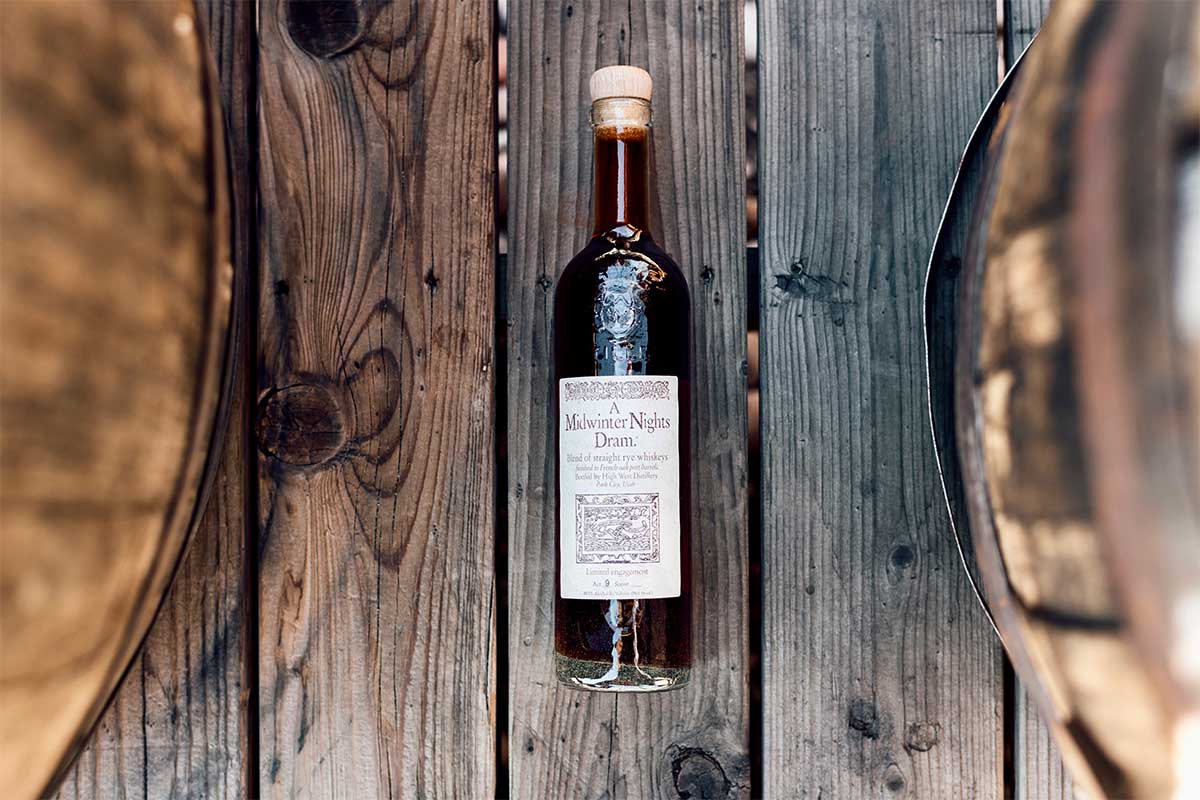
High West A Midwinter Night’s Dram
(October) Luscious, warming, and rich, this barrel-finished rye seemingly flew under the radar for years until, suddenly, everyone wanted it; now, you’re lucky to find it with the suggested $100 price tag. A base of High West’s Rendezvous Rye blend is finished in ruby and tawny port casks, which add texture and flavors of dark berries and cherries, figs, and toffee to the underlying panoply of spices. Each bottle has a code referring to an act and scene, a nod to the Shakespeare play from which the name is taken; the act is the release year (2021 was year 9), and the scene refers to its bottling day.
High West Campfire
(August) Once a regular part of the High West lineup, Campfire has become a limited release, rolling out every year just in time for fall. The groundbreaking blend of bourbon, rye and peated Scotch can be polarizing, especially if you’re not expecting the punch of smoke, but it’s always balanced and full-flavored.
Remus Repeal Reserve
(September) While Indiana’s MGP Distillery has supplied dozens of other brands for years, it only recently began marketing its own brands, among them George Remus. Named for the infamous bootlegger (who murdered his own wife, among a host of other crimes), the straight bourbon’s annual limited edition blends multiple liquids that vary by rye percentage and age. Drawing from the distillery’s deep stocks, the youngest whiskey is usually 10-12 years old. Remus Repeal Reserve’s recommended price has crept up over the years and now sits at $90.
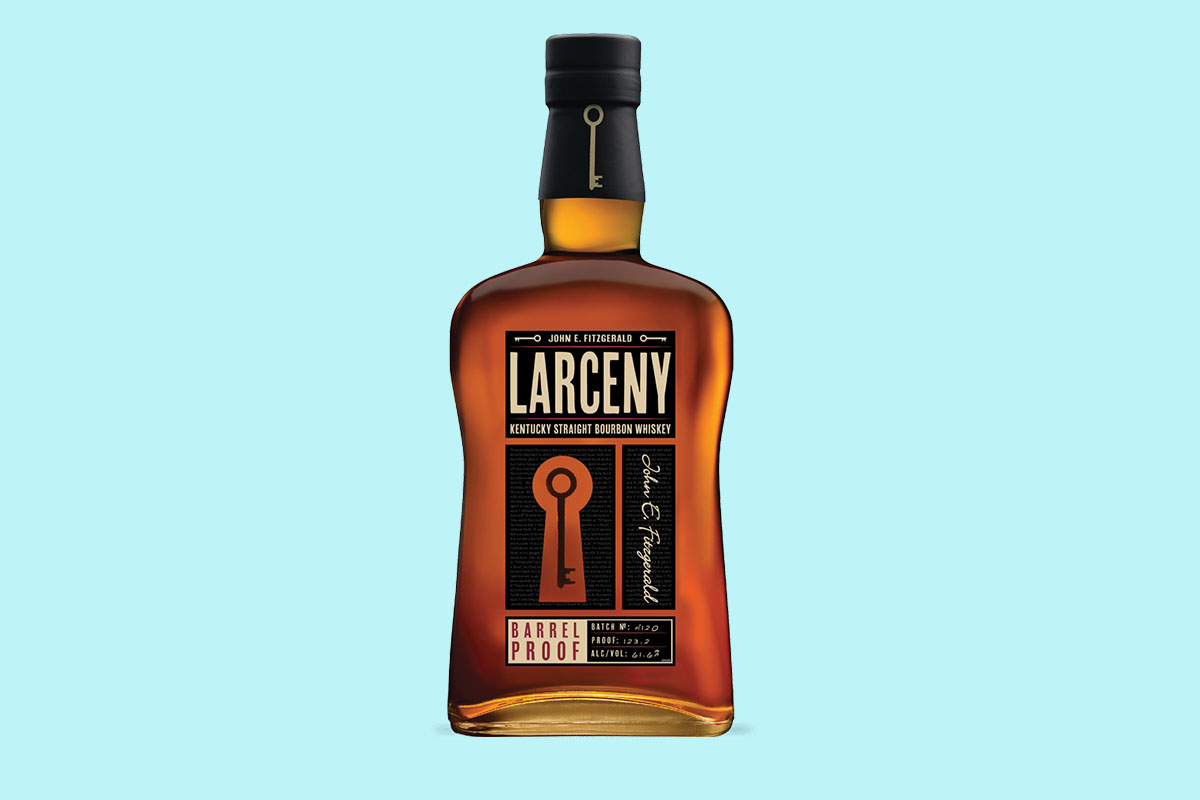
Elijah Craig Barrel Proof and Larceny Barrel Proof
(January, May and September) Made by Heaven Hill, these bourbons aren’t as hard to track down as other limited editions on the list, thanks to the fact that they’re released at regular intervals. Each bottle has a batch code showing when it came out: a letter — A, B, or C, indicating whether it was the first, second, or third release of the year —followed by a three-digit number. The first digit corresponds to the release month, and the last two are the year. Since there’s plenty of both bourbons to go around, it’s hard for retailers to jack up the price, and finding them at around $65 (for Elijah Craig) or $50 (for Larceny) should be fairly easy.
Blade & Bow 22-Year-Old
(September) Released every year for National Bourbon Heritage Month, this limited-edition version of Blade & Bow bourbon calls the historic Stitzel-Weller Distillery home—though, considering that the distillery hasn’t made whiskey since 1992, the liquid comes from somewhere undisclosed. The ripe old age of 22 is pretty unusual for bourbon (and, indeed, any whiskey) — as well, parent company Diageo apparently has only a finite amount of it, which explains why the suggested retail price more than doubled from 2017 to 2022.
Remus Gatsby Reserve
(Fall) This extra-mature bourbon is named for the F. Scott Fitzgerald novel The Great Gatsby, whose titular character is rumored to have been inspired by the real-life George Remus. It joins Repeal Reserve in the brand lineup but in even more limited amounts. It’s 15 years old and always cask strength — though the first two releases both came in under 100 proof, perhaps because of low barrel-entry proof or an aging environment where the alcohol evaporated more quickly than water.
Leopold Bros. Three Chamber Rye
(October) Todd Leopold, co-founder of Leopold Bros. Distillery in Denver, made history when he debuted this whiskey in the spring of 2021. An homage to the historic Monongahela rye style, it was made on the world’s only three-chamber still, which Leopold commissioned from Vendome Copper & Brass Works. Made with 80% of heirloom varietal Abruzzi rye, the whiskey is utterly unlike any other rye on the shelf today: grain-forward and herbaceous, with an almost hoppy pine character. It comes out in a holiday edition every fall, with additional batches released sporadically.
Barrell Bourbon New Year
(November) Many of us carefully choose what whiskey to ring in the New Year with, and Barrell offers the perfect option with its annual special release. Usually a blend of straight bourbons of different ages and provenances, Barrell New Year varies by design, just like every other batch from the company. This allows the blenders to highlight the best characteristics of each component, a process that involves creating a series of micro-blends, then combining them into a master blend. The end result is always full-flavored and barrel-proof, perfect for kicking out the old year and gearing up for what’s ahead.
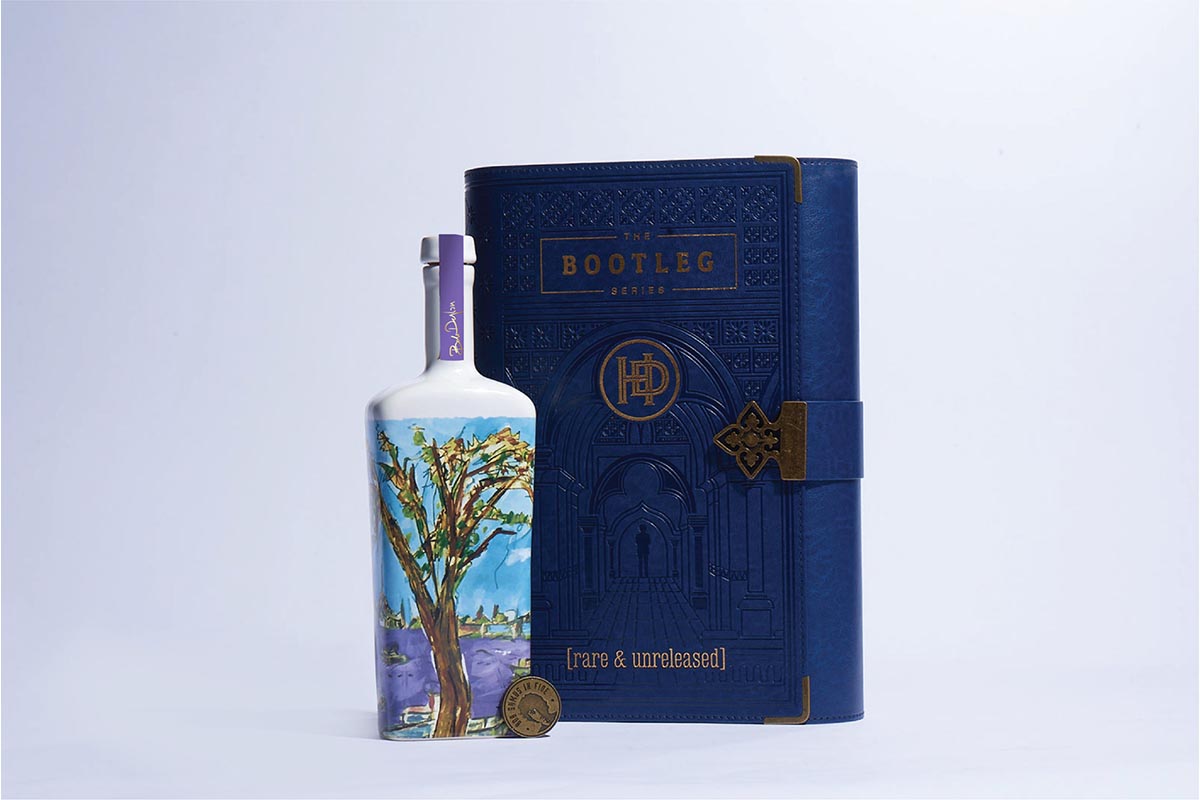
Heaven’s Door Bootleg Series
(Late Fall) The annual limited edition from Bob Dylan-backed Heaven’s Door is always packaged in a ceramic bottle imprinted with one of the musician’s original paintings, but the liquid inside varies. Past releases have included 26-year-old Canadian rye finished in mizunara oak; 15-year-old Jamaican rum-finished Tennessee whiskey; and 13-year-old bourbon that spent time in a vino de naranja cask from Spain. These barrel-proof whiskeys are pricey — $500 and above — and limited to a few thousand bottles each year.

Hardin’s Creek
(Varies) This series encompasses a variety of whiskeys made by the James B. Beam Distilling Co., each inspired by the Beam family legacy and featuring something innovative or extra-special. Releases have included Colonel James B. Beam, a bourbon whose unique production enabled a super-short maturation time of just two years, and a trio of 17-year-old bourbons, each distilled identically but matured at a separate site — Clermont, Frankfort and Boston, Kentucky — allowing for flavor comparisons. The whiskeys all tend to feature high proofs and don’t follow a particular release schedule.
Old Fitzgerald Bottled-in-Bond
(May and September) The semi-annual release schedule mirrors the two distilling seasons for bottled-in-bond bourbon — Spring (January-June) and Fall (July-December), with occasional distillery-only bottlings as well. As a bonded bourbon, the whiskey’s proof is always 50% abv but the age has ranged from as young as 8 (Spring 2021) to as old as 15 (Fall 2019) and higher, and prices ladder up accordingly — about $10 for each year of age. While the liquid itself, made by Heaven Hill, is always impeccable, the beautiful decanter-style bottle elevates the drinking experience further.
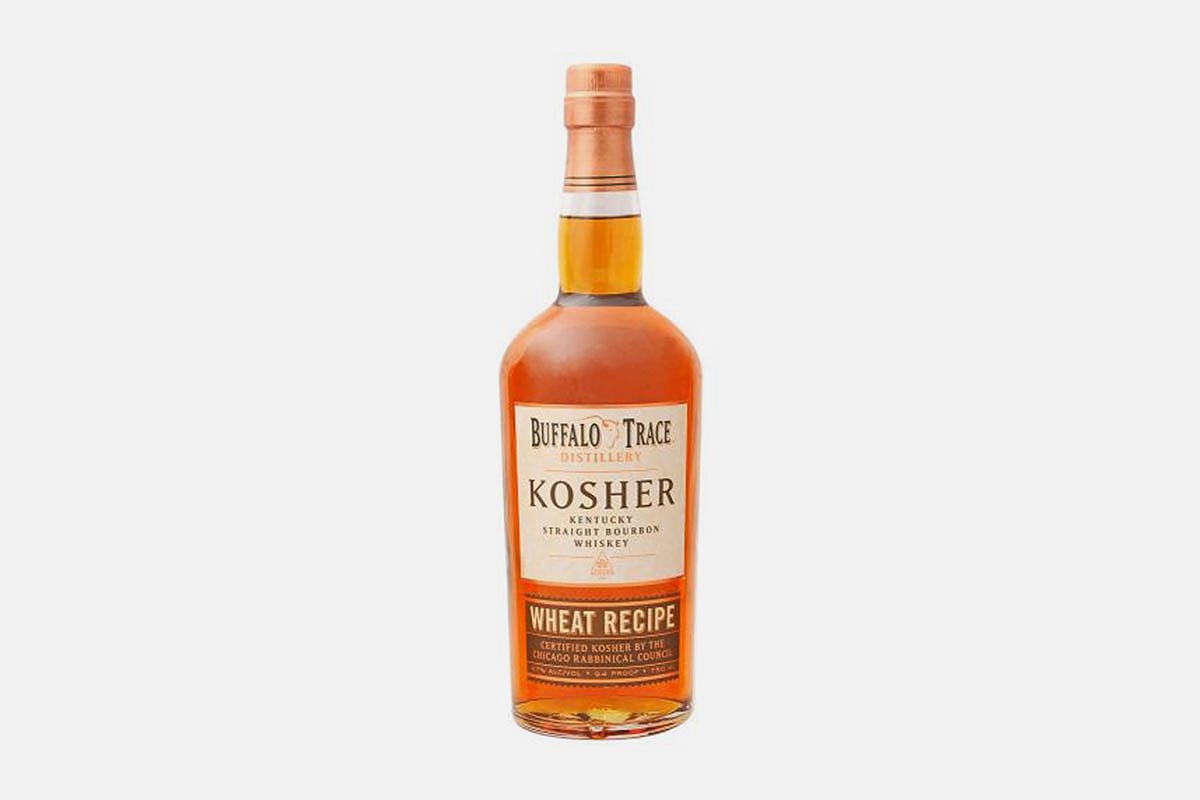
Buffalo Trace Kosher Bourbon and Rye
(Spring) Most rabbis agree that bourbon and straight rye are automatically kosher, but some distilleries pursue official certification. Because William Goldring, the owner of Buffalo Trace parent company Sazerac, is Jewish, he has to sell the barrels that hold these particular whiskies to a non-Jewish employee for the duration of Passover as a condition of their kosher certification. (Google “chametz whiskey” to learn more, or read our article.) After Passover, the distillery launches the year’s allocation of two straight bourbons — Wheat Recipe and Rye Recipe — and straight rye in this collection.

Heaven Hill Heritage Collection
(Spring) While Heaven Hill has offered the Parker’s Heritage Collection since 2007, the distillery added this limited-edition lineup in 2022. Its focus is extra-mature whiskeys, what Heaven Hill says are some of the oldest in its warehouses. Like Parker’s, this series can feature any style of whiskey, not just bourbon, and because Heaven Hill has such deep reserves, you end up with surprises like a knockout 20-year-old corn whiskey. Though Parker’s comes out in the busy fall release season, the Heaven Hill Heritage Collection is released every spring.
King of Kentucky
(September) A historic brand that Brown-Forman revived in 2018, this bourbon is always well-aged — 14 or 15 years old — and barrel proof. Selected by master distiller Chris Morris, it’s bottled as a single barrel, so the amount released varies from year to year but never exceeds a few thousand bottles, which are mostly distributed in Kentucky. Such limited volume makes this a rarity indeed, but well worth seeking out, especially if you can find it at the suggested price of $250.
Compass Box The Circle
(Spring) Boutique scotch blending house Compass Box runs a semi-regular bartender competition, bringing together top mixologists for a series of tests of creativity. The winner gets to collaborate on a new blend, released worldwide as a limited edition; like all Compass Box products, it’s beautifully packaged in a Stranger & Stranger–designed bottle. The first iteration of The Circle launched in 2019 but with the competition interrupted by the pandemic, it took until 2022 for the series to pick back up again, and it should be evolving further in the future.
Heaven’s Door Decade Series
(Summer) Every release in this series is, as you might have guessed, 10 years old, taken from barrels selected by the Heaven’s Door team many years back. More available than the brand’s Bootleg Series, these whiskeys are also reasonably priced at about $100. So far releases have mirrored the core trio of Heaven’s Door — bourbon, rye and Double Barrel, which blends both — but are distinguished by the extra age and higher proof.

Teeling Wonders of Wood
(June) Few distilleries have tried as many, and as varied, maturation casks as Teeling. While the experimentation is usually done at the finishing stage, this annual release highlights the flavors that come from full maturation in unusual barrels. The whiskey is always Teeling’s triple-distilled single pot still, which creates a sturdy, creamy base for woods like virgin Portuguese oak and Chinkapin oak (a bottling that won the World’s Best Irish Single Pot Still at the World Whiskies Awards in 2022).
Diageo Distillers’ Editions: Cragganmore, Dalwhinnie, Glenkinchie, Lagavulin, Oban, Talisker
(December) If you already know and love whiskies like Oban 14 and Lagavulin 16, the annual Distillers’ Editions should be your next pour. They’ll taste familiar, having the same age as their standard counterparts, but always sport a unique cask finish for added dimension. Think rich amoroso sherry to complement Talisker’s brine, or nutty amontillado as a counterpoint to the honeyed floral notes of Glenkinchie. And unlike Diageo’s Special Releases, which can cost several thousand dollars, the Distillers’ Editions are typically $100 or below.
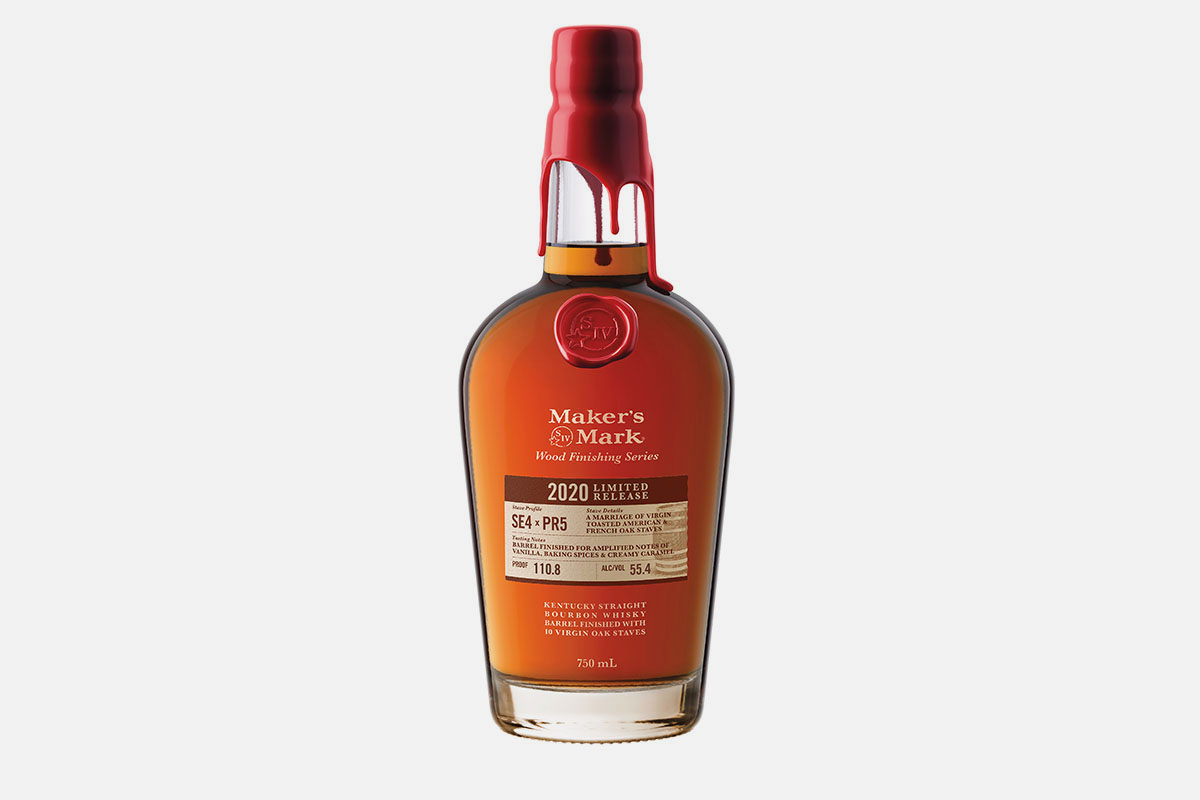
Maker’s Mark Wood Finishing Series
(September/October and Sometimes Spring) Maker’s famously rotates the barrels in its warehouses to ensure consistent maturation, so to create unique flavors for its Private Select series and these limited editions, it employs an ever-increasing range of custom wood finishing staves from Kelvin Cooperage. The white oak staves are toasted, roasted, charred and baked to yield specific, intense flavors, from butterscotch and figs to baking spices and tobacco. The Wood Finishing series debuted in 2019 as a once-a-year fall release but sometimes includes a bonus bottling in the spring. Bourbons are named for their stave types, identified by a number and letter code, and bottled at cask strength with a retail price of $60.

Westland Outpost Range: Garryana, Colere and Solum
(Winter, Spring and Fall) Westland has been pioneering American single malt for years, and it places a special emphasis on its Pacific Northwest provenance with the Outpost Range. Garryana (releases in fall) was the first to debut, featuring liquid matured in native Garry oak, a species whose protected status means barrels can only be made from fallen trees. Next came Colere (releases in spring), distilled from any number of locally-grown barley varieties. And Solum (releases in winter) rounds out the trio, a unique whiskey that’s smoked with peat not from Scotland, but Washington State.
Woodford Reserve Master’s Collection and Master’s Collection Batch Proof
(October and March) For years, Woodford Reserve offered its limited-edition Master’s Collection once a year in the fall, each whiskey a unique creation from the mind of master distiller Chris Morris: bourbons made with white corn or oats, finished in maple wood, chardonnay, and brandy barrels, and much more. Then in 2019, the distillery added a second Master’s Collection release called Batch Proof, a barrel-proof version of the core bourbon, which comes out in the spring. Both whiskies hit the shelf at around $130, and Batch Proof has become especially in-demand.
Woodford Reserve Double Double Oaked
(Winter) Taking the trend of “double oaking” to an extreme, Woodford Reserve matures its flagship bourbon in new charred oak barrels, then transfers it to a second set of new, heavily toasted and lightly charred oak barrels — and then to a third. Released after the holidays, this fan-favorite Woodford bourbon is usually available only in Kentucky, though a 2022 sweepstakes offered people nationwide the chance to get their hands on a bottle—if they could make it to the distillery for pickup. Half-size bottles mean there’s more to go around, but this limited edition still remains fairly elusive.

Angel’s Envy Cask Strength
(Fall) Though it appears to be simply an amped-up version of Angel’s Envy’s core port-finished bourbon, Cask Strength usually has older whiskey in the mix and spends longer in the finishing casks (there’s also now a rye). The rich, rounded character imparted by the fortified wine makes this dangerously easy to drink, even with a hefty proof that’s usually somewhere north of 60% ABV. Of course, there’s a hefty price tag, too, at $200, but it still doesn’t sit on the shelf for long.
Angel’s Envy Cellar Collection
(February/TBD) Launched in 2019, the Cellar Collection gives Angel’s Envy an opportunity to try out novel barrel finishes on a small scale. Expressions have included bourbons finished in oloroso sherry, tawny port, and madeira, and a rye finished in ice cider casks — a world first. Most of the releases hit shelves in February, though 2021 saw a launch in June, and the distillery says that there isn’t a planned pattern for the future.

WhistlePig The Boss Hog
(Fall) Initially created by legendary master distiller Dave Pickerell, the Boss Hog series draws on WhistlePig’s extensive stock of aged and cask-finished rye. Blends can get complex — the 2020 release, Magellan’s Atlantic, built on a base of 17-year-old rye with two finishes, in new Spanish oak and Brazilian teak wood — and the $500 asking price is hefty, but unopened bottles can command a premium on the secondary market. Plus, each one comes with a unique pewter pig topper, which is much more interesting to collect than a Blanton’s cork.

Stranahan’s Snowflake
(First Saturday of December) You’ll have to get to Denver in person to pick up this special single malt, always named for a Colorado peak, but the trip is worth it for the legendary Snowflake release event. Diehard fans line up days in advance, angling to get Bottle #1, and the tailgate atmosphere, filled with music, food, and plenty of whiskey, keeps spirits high even in sub-freezing temperatures. Stranahan’s moved the release site from its distillery to Red Rocks Amphitheater in 2021, giving everyone more room to spread out and raising the bar for eye-catching Instagram brag shots.
Blood Oath
(Spring) Lux Row master distiller John Rempe makes a unique blend for each year’s “pact,” typically featuring a mix of straight and barrel-finished bourbons. Finishes have ranged from rum to sauternes to armagnac, with ages from 8 years old up to the middle teens. Seemingly designed specifically to court the collector, the brand has succeeded; shelf prices regularly exceed the bourbon’s recommended $100.
Weller CYPB and Full Proof
(Early Summer) Any bottle with the name Weller on it is in high demand these days, but C.Y.P.B. (Craft Your Perfect Bourbon) and the 57% abv Full Proof make for particularly precious trophies. C.Y.P.B. resulted from an online poll of Buffalo Trace fans to crowd-source the “perfect bourbon” — which apparently is made with a wheated mash bill, aged for 8 years on the top floors of the warehouse, and bottled at 44.5% abv. Full Proof is bottled without chill-filtration at the same proof at which it entered the barrel. Both bourbons carry a suggested price of $50 but can rarely be had for that IRL.
Little Book
(August) Eighth-generation Jim Beam distiller Freddie Noe debuted the first “chapter” in this series in 2017, combining straight bourbon, rye, corn, and malt whiskies for a firecracker of a blend. Noe himself is the “Little Book” in question; his grandfather, legendary master distiller Booker Noe, gave him that nickname as a child. Subsequent releases have shown off Noe’s blending prowess while diving deep into the Beam warehouses — not just in Kentucky, but Canada too. The suggested price usually falls around $125, but is often higher in practice.
Jack Daniel’s Limited Edition Single Barrel
(November) Not to be confused with Jack Daniel’s Single Barrel — which includes 47% abv Select, 100 Proof, Barrel Proof, and Rye iterations, available throughout the year — the Limited Edition Single Barrel comes around every fall and features a whiskey that riffs on the brand’s standard lineup. Single Barrel Heritage Barrel kicked off the series and showcased Jack Daniel’s as it might have been made in the late 19th century, followed by Single Barrel Barrel Proof Rye, which was exactly what it sounds like — an amped-up version of the distillery’s rye. Runs usually number around 200 barrels, with bottles priced at a very reasonable $65.
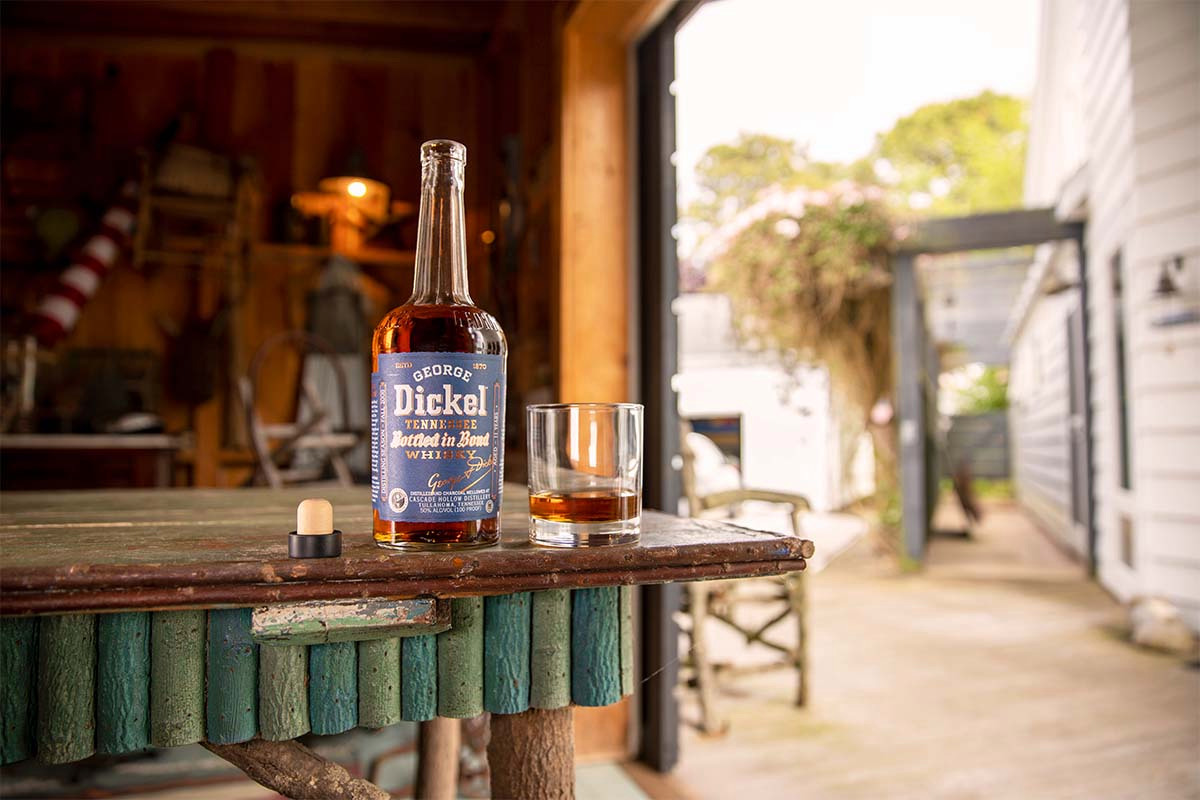
George Dickel Bottled in Bond
(May) Cascade Hollow Distilling Company head distiller and general manager Nicole Austin came out swinging with this Tennessee whiskey, whose first batch debuted in 2019 and netted “Whisky of the Year” from Whisky Advocate. As a bonded product, each year’s bottling reflects a different distilling season, with Austin spending months tinkering with the blend. Luckily, she has deep stocks to pull from, thanks to the distillery’s ample production capacity. Though the price has gone up by 20% since the first batch, it’s still the best bang-for-buck bottle you can buy, at $45 for a straight whiskey aged in the double digits.
Diageo Special Releases
(Fall) The premier limited-edition scotch series is drawn from spirits giant Diageo’s collection of 30 single malt distilleries. Once upon a time, the Special Releases always included a Port Ellen and Brora, but those have been pulled back as the company prepares to reopen the fabled distilleries. (They still appear as extremely pricy one-offs from time to time, however.) You can always count on a 12-year-old Lagavulin in the Special Releases, and every whisky is guaranteed to be bottled at cask strength. Diageo discloses bottle counts for some, but not all of the whiskies in the series, making collectability a bit of a gamble.
Orphan Barrel
(Varies) Originally focused on American whiskey, the Orphan Barrel series has expanded in recent years to incorporate Scotch as well. One-off bottles feature extra-mature age statements with quirky names like Muckety Muck and Gifted Horse, plus whimsical label art to match. Releases happen regularly — currently two annually — but not on a set schedule, so it’s best to keep your eyes peeled year-round.

Ardbeg Day Release
(Spring) Every distillery on Islay offers a special whisky for Fèis Ìle, the island’s whisky festival, but usually you have to attend to snag a bottle. Ardbeg, however, makes enough to send some to the U.S., though it’s bottled at 46% ABV instead of the usual cask strength. While the UK version, known as the Committee Release, debuts on the final day of the festival at the beginning of June, the American bottlings often arrive earlier. Committee Releases can be quite collectible at around $120 a pop, but you’re just as well off drinking these highly enjoyable whiskies.
Glen Scotia Campbeltown Malts Festival
(Late Spring) Glen Scotia is often overshadowed by its more famous neighbor Springbank, but it packs just as much flavor and character into its single malts, especially the annual limited edition. Released to coincide with Campbeltown’s whisky event, which takes place in May, it’s the rare festival scotch that gets exported to the U.S. and usually features a special cask finish such as rum, tawny port and Bordeaux red wine. Prized by single malt lovers for its oily, maritime nature, Glen Scotia is ripe for wider discovery, and this is a great entry.
Laphroaig Càirdeas
(Summer) Càirdeas is Scots Gaelic for friendship, and this special single malt serves as a gift to fans of the Islay distillery’s peaty profile. Distillery manager John Campbell creates each unique, cask-strength edition; past bottlings include single malts finished in fino sherry, madeira, port and red wine casks, among others. Priced around $100, Càirdeas is generally easy to find within the first few months following its release and sometimes longer.
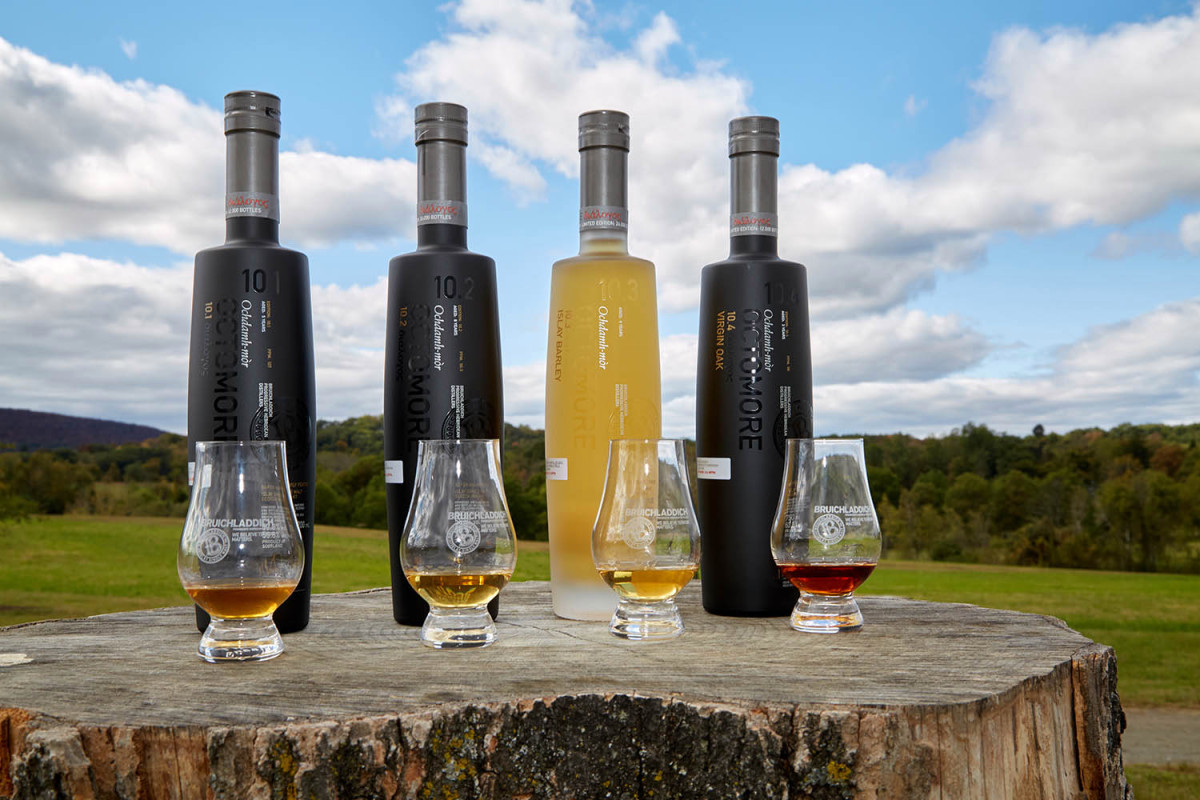
Bruichladdich Black Art and Octomore
(Fall) Among other things, Islay’s Bruichladdich Distillery is known for its commitment to transparency — sharing every possible detail about its whiskies — and the fact that most of what it makes is unpeated. So of course its special releases would go against the norm. Black Art (about $450), originally created by master distiller Jim McEwan and now overseen by head distiller Adam Hannett, is released with no information other than the age of the youngest whisky in the blend. The Octomore series, meanwhile, features heavily peated whisky at cask strength. With multiple bottlings in each annual release, this lineup is extremely collectible, even at shelf prices that start around $200.
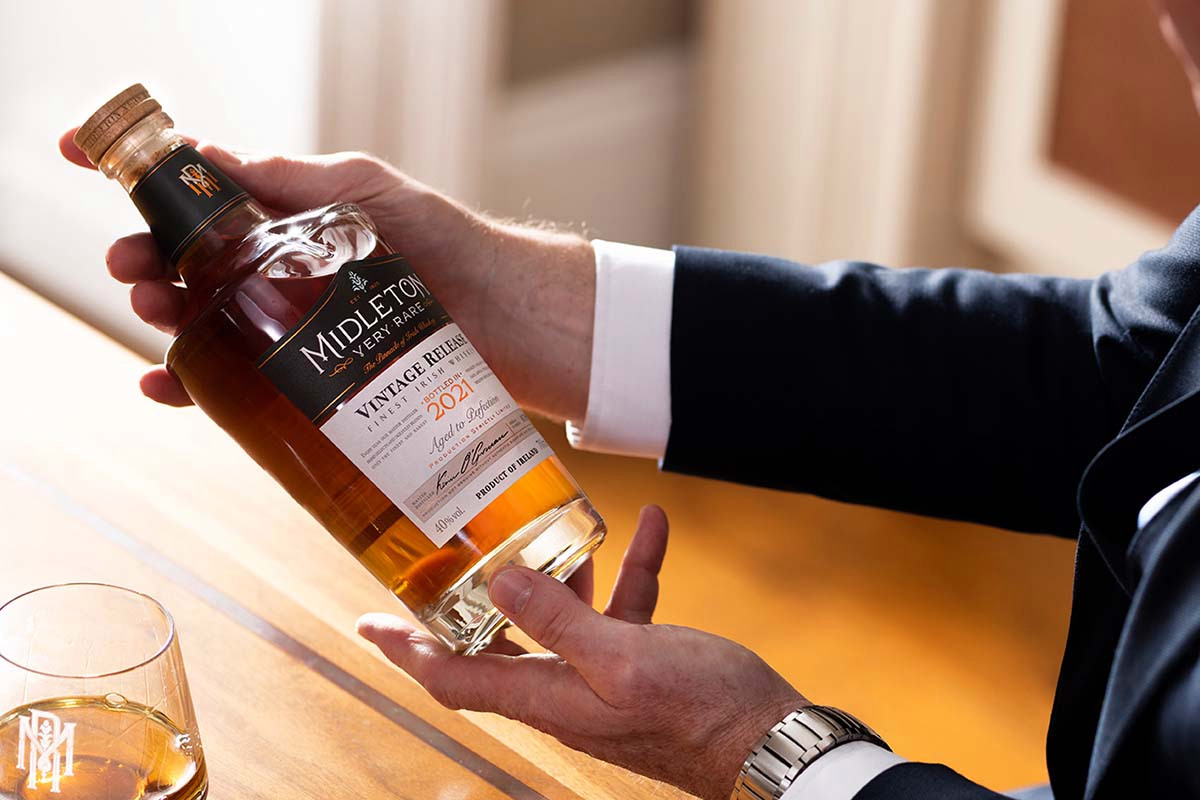
Midleton Very Rare
(June) Midleton Very Rare is not only the OG limited-edition Irish whiskey, it’s one of the great granddaddies of the current special release craze. The boutique blend has been created by only three master distillers since its inception in 1984. Despite, or perhaps because of its long standing, Midleton Very Rare can often be found at or near the recommended price of $220. It features a combination of extra-mature single pot still and single grain whiskies from Ireland’s largest producer, which also creates a little brand called Jameson. Within the Very Rare family are additional offerings, including Dair Ghaelach — single pot still whiskey aged in Irish oak — and the extremely limited Silent Distillery Collection.
Every Thursday, our resident experts see to it that you’re up to date on the latest from the world of drinks. Trend reports, bottle reviews, cocktail recipes and more. Sign up for THE SPILL now.
